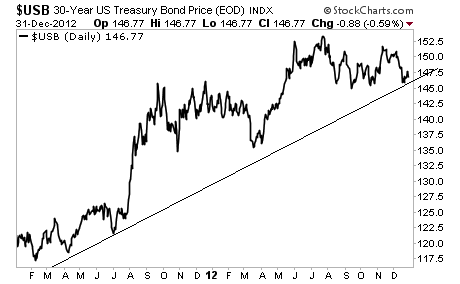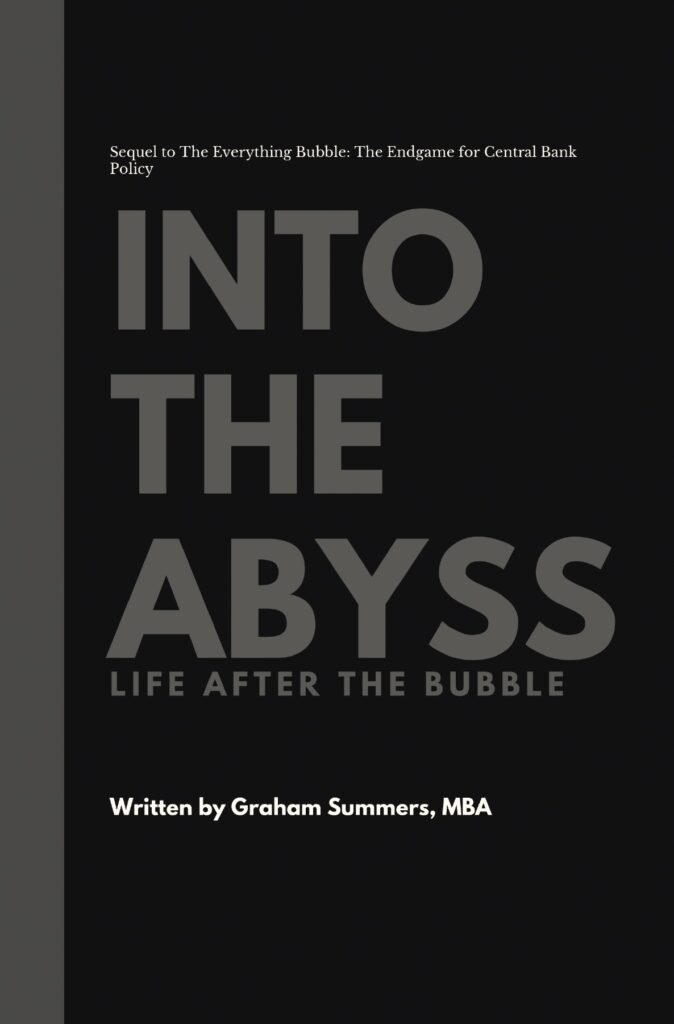A month back I warned that the US political class was adopting the very same tactics employed by EU politicians in combating our growing economic/ financial problems.
Those tactics are as follows:
1) Stage a meeting/ talk
2) Spread rumors that a solution had been reached (verbal intervention to prop the markets up)
3) Fail to address any real issues or provide solutions
4) End the meeting with a PR campaign that much was accomplished without providing any details
5) Wait for the markets to realize that nothing was fixed and fall
6) Repeat the whole process over again
This strategy has allowed EU officials to drag out the Greek issue (a country whose economy comprises only 2% of the EU’s GDP) for over two years with little political consequences for the key players. Seeing this, the US political class is now employing these tactics in full force as revealed by the fiscal cliff debacle.
Regardless of one’s political affiliation or beliefs, from an economic and fiscal perspective, the cliff deal has accomplished nothing of import. The tax increases will raise $620 billion over the next ten years. So that’s roughly $62 billion in new tax revenue per year.
The US has run a $1+ trillion deficit for four years now. $62 billion is barely even 6% of this. When you combine this with the proposed $15 billion in spending cuts (less than even 2% of our deficit) presented in the “deal,” it’s clear that nothing of significance has been addressed or solved.
Regardless, the markets rallied on this news, just as they’ve rallied on countless rumors of a Greek solution and other announcements from EU leaders over the last two years. Verbal intervention is a key force for the political class. They will use it as much as they can.
In broad strokes, this is the official playbook for political leaders in the Western world. Facilitating this is the ongoing monetary easing by the global Central Banks who have collectively pumped $10 trillion into the system since the Great Crisis began. In simple terms, Central Banks provide the glue to hold the system together while politicians meet and negotiate without ever really solving anything.
This will work until the bond markets finally begin to crack. With Central Banks buying much of the bond issuance coming out of the Western world, once the bond markets really drop it’s game over for this scheme as the Central Banks won’t have the firepower to keep the system together.
On that note, the S&P 500 continues to trace out a large rising wedge pattern. We’re at a critical juncture: overbought in the middle of the pattern. Whichever way we move from here will outline the intermediate trend.
Meanwhile, the 30-year Treasury is once again testing its upward sloping trendline. Bernanke better hope this line continues to hold because he’s fast running out of ammunition.
On that note, we recently outlined a number of targeted trades to help our Private Wealth Advisory newsletter subscribers profit from the fiscal cliff negotiations.
This morning, three of them are up 4%, 5%, and 6%.
Private Wealth Advisory is a bi-weekly investment advisory newsletter in which we provide high level detailed interpretations of the global economy and financial markets to our subscribers.
By combining this analysis with independent investment ideas that grow our clients’ portfolios, Private Wealth Advisory has become a highly sought research tool for individual investors as well as strategists at some of the largest financial institutions in the world.
To find out more about Private Wealth Advisory and what makes it different from other investment newsletters…
Graham Summers
Chief Market Strategist
Phoenix Capital Research






